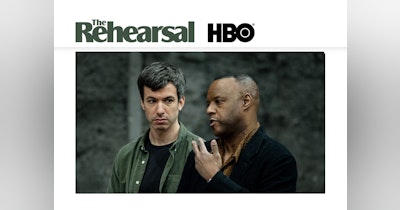Yesterday’s unanimous Supreme Court ruling that the NCAA’s cannot bar modest payments to student athletes puts a final nail in the coffin of the late Mitzi Shore, who famously refused to pay the comedians who worked at The Comedy Store until they went on strike in 1979.
Like the NCAA, Mitzi used the veneer of being “a college for comedians” to avoid the unpleasant requirement of paying workers for their labor. It would be like Uber saying it’s drivers they should work for free because they’re being groomed to be chauffeurs and NASCAR drivers.
As comic Tom Dressen put it to Mitzi, You pay the waitresses. You pay the bartenders. You even pay the guy who cleans the toilets. The name is The Comedy Store and the only people you don’t pay are the comics.
Indeed, the SCOTUS ruling sheds a harsh light on an ugly American practice of rich tycoons trying to get free labor. The most heinous example was slavery. But when that became illegal, the new business fad became finding ways to pay as little as possible. Which is often-times cheaper than slavery because you don’t have to house and feed your employees.
Waiting tables comes to mind. While the practice of tipping was initially a well-intentioned way of adding a little extra cash into the hands of frontline workers, it has morphed over the past century into an oppressive pay system that relieves restauranteurs of the responsibility to pay their servers a fair wage. Employers in 43 states and D.C. can pay tipped workers as little as $2.13 per hour, with the understanding that customer tips will make up the difference so servers earn at least the minimum wage. But under new rules approved by the Trump administration in its final days, restaurant owners can shift more and more non-tipped restaurant tasks to those employees at the same $2.13 per hour rate.
So yeah, maybe with tips you can make close to $15 an hour during your table shift. But if 40% of your dayshift is stocking the kitchen or cleaning the restrooms at $2.13/hr, you’re back under $10/hour for the day. With no healthcare or sick pay benefits.
Minor league sports is another area where the glamour of the job has been used to depress fair pay. Minor league baseball players (and pay-by-play announcers) are treated like farm hands. Rookies in an independent league can be paid as little as $1,200 a month during the season, about $6,000 for their five month “job.” (For which they have to train another seven months at no pay to stay in shape.) That’s less than a summer camp counselor! True, minor league ballplayers are housed during the season with “host families,” which adds a little more value to their compensation package. If you consider living free in the guest room of a Wichita home “compensation.”
Then there is the true slave-labor practice of professional “internships.” Once considered a perk of one’s college education, free or low-pay internships have become de rigueur in the entertainment and music industries. College graduates and even kids with masters degrees are seduced into accepting no-pay or silly-pay jobs just to get a foot in the door of a glorified industry. Sure, some of them parlay that break into million dollar careers. But that doesn’t make the practice any less onerous than when David Letterman and Jay Leno were earning zero just to make Mitzi Shore rich.
Personally, I hope NCAA athletes continue to push the issue in the courts and finally earn their fair share of a billion dollar industry that’s exploited them for decades. Whenever the choice is between laborers and owners, I’ll throw my hat with the laborers every time. Even if it means paying a buck more at Starbucks or $10 more for a sit-down dinner.
Because when I pay $50 bucks (or more) for a night of professional comedy or music entertainment, I want to know that the folks on stage are being paid more than ones cleaning the toilets.










